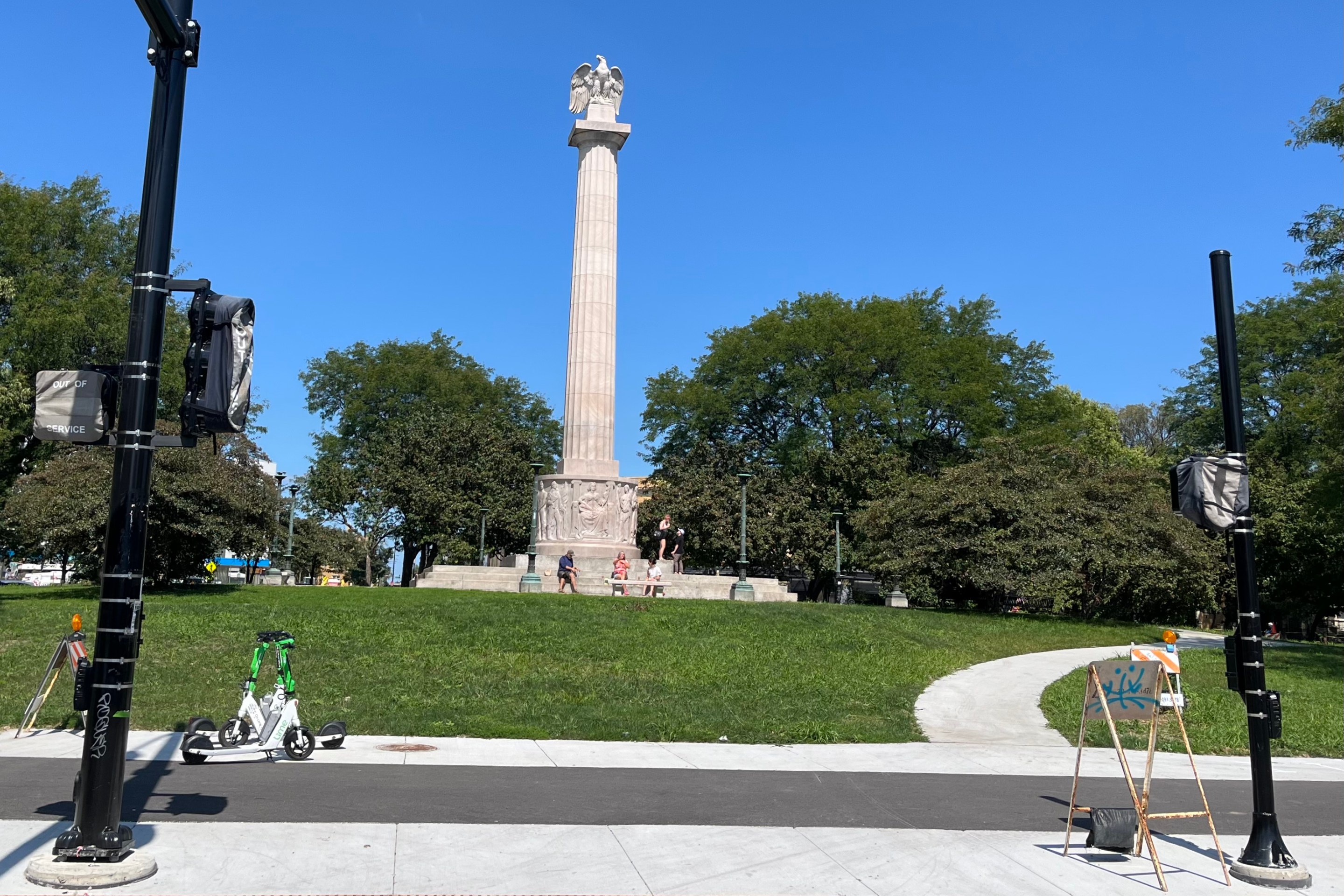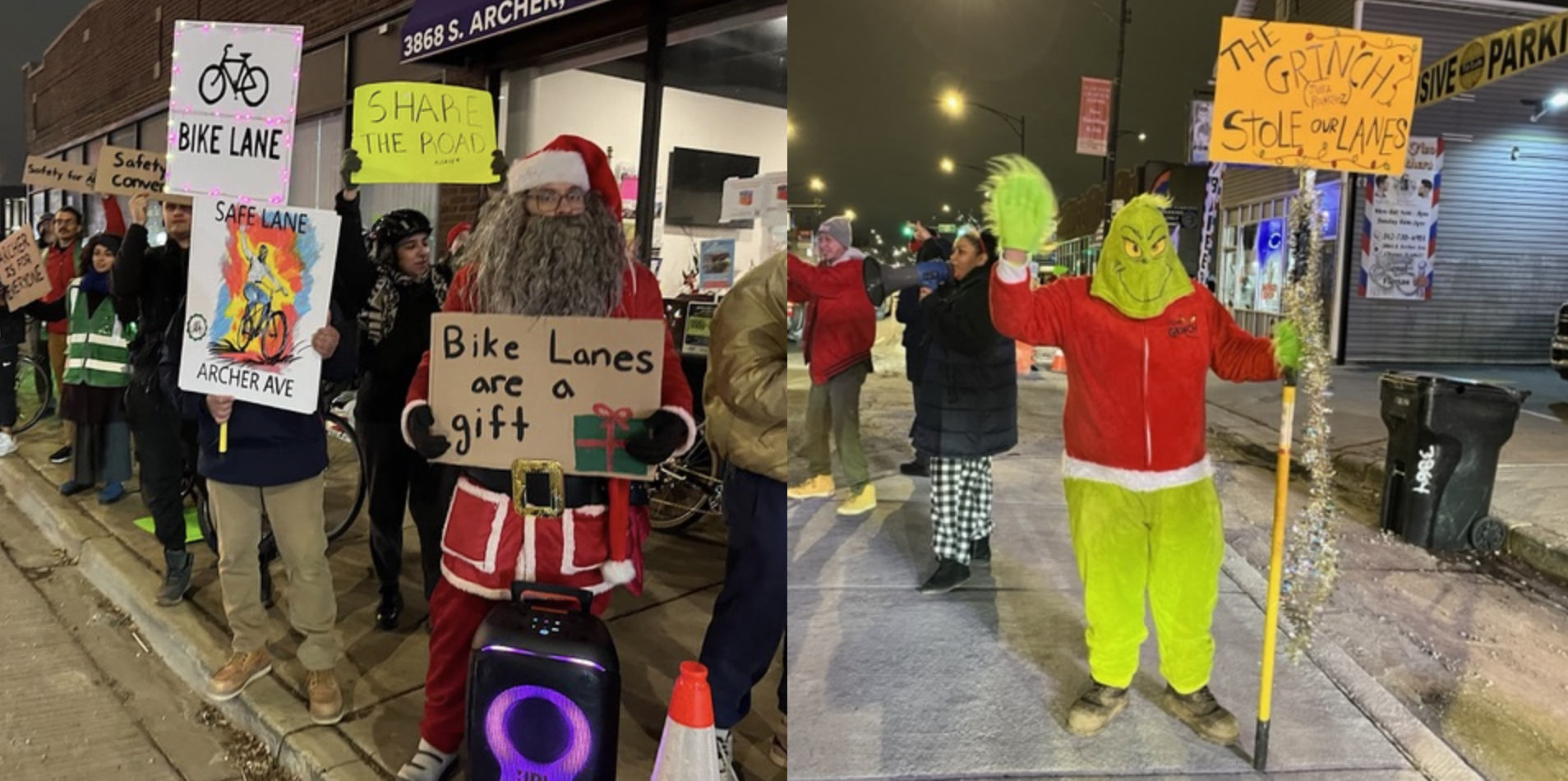
Inspired by New York City, Philadelphia has created its own pedestrian plaza program. Unfortunately, Philadelphia's ambitions have so far been hindered by some pretty zealous restrictions, like one that would require 100 percent of adjacent property owners to agree to the change.
Nevertheless, Geoff Kees Thompson at This Old City reports that a new pedestrian plaza will be installed in an area called the Greys Ferry Triangle. The improvement was supported by an overwhelming 98 percent of neighbors, so Councilman Kenyetta Johnson used his authority to override the 100 percent rule. Thompson says it's a huge win for everyone involved:
Plans for the space are impactful, thoughtful, and parking neutral. Below you'll find the current plan of the space next to the future plan. Many years of legwork from The Grays Ferry Triangle Committee including garnering support for the project from property owners, organizing regular maintenance of the space, designing and reworking countless proposals, and direct engagement with elected and non-elected officials have meant this project will finally be coming to fruition. [The Mayor's Office of Traffic and Utilities] and Streets Department have also been shepherding this particular effort and should be commended for their vision in repurposing streets for other active uses and working with the Grays Ferry Triangle Committee to finalize an approved design.
We have every confidence that the project will be an economic boon to the many businesses flanking the triangle. Pedestrian amenities like planters, greenspace, seating, lighting, aesthetic improvements and programatic events (outdoor fitness, jazz, kids activities etc.) are all planned for this important gateway to Graduate Hospital and the South Street West businesses. We'll follow up with additional details/plans as May approaches. Every space we reclaim for people and greenery is a win for public space and our city.

Elsewhere on the Network today: The Political Environment runs down the hundreds of millions of dollars Wisconsin is pouring into new roads while existing infrastructure becomes increasingly potholed. Better Institutions critiques a recent study that discounted the environmental benefits of California High Speed Rail. And Greater Greater Washington explains the distorted logic some condominium associations use to ban bike parking.



